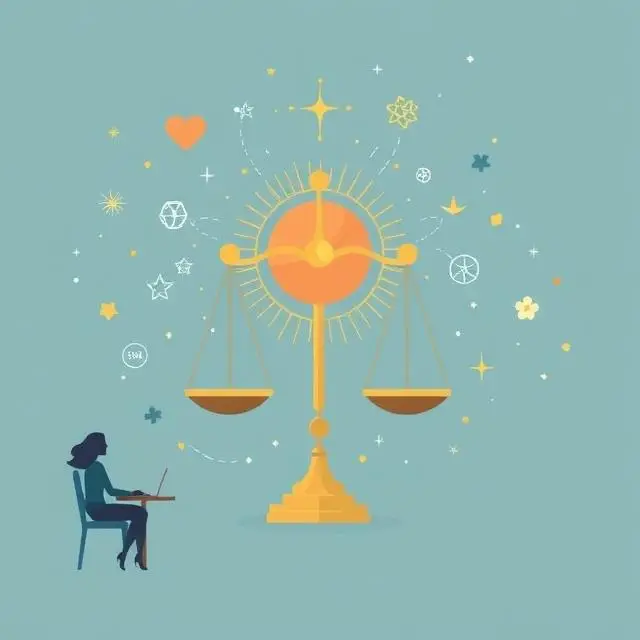Fairness is a universal ideal, but its interpretation and application vary dramatically across different cultures. While many cultures share the belief that fairness is crucial to social cohesion, the way fairness is understood and enacted differs based on societal values, historical contexts, and cultural norms. We will explore the varying cultural perspectives on fairness, examining how Western, Eastern, and Indigenous cultures approach this concept in distinct ways. We will also analyze fairness in social, economic, and familial contexts and how globalization is influencing perceptions of fairness.
The Universal vs. Relative Understanding of Fairness
Fairness is often considered a universal principle, but the lens through which it is viewed can be highly subjective and influenced by cultural values. In some cultures, fairness is equated with individual rights and autonomy, while in others, it may be understood as the maintenance of harmony or the prioritization of the collective good. The question of whether fairness is universal or relative is complex, as different societies have developed their own interpretations of what it means to be “fair.”
Western Perspectives on Fairness
In Western cultures, such as those in North America and Europe, fairness is commonly associated with individualism, meritocracy, and legal equality. This approach emphasizes personal rights, individual achievement, and the idea that all people should have equal opportunities to succeed based on their abilities and efforts. Western legal systems often reflect these principles, with a focus on formal equality before the law, where fairness is operationalized through procedures such as due process and equal treatment.
In the United States, for instance, fairness is often seen through the lens of the “American Dream” the belief that anyone, regardless of background, can achieve success if they work hard enough. The legal system supports this by ensuring equal access to rights, whether in education, employment, or the judiciary. However, critics argue that systemic inequalities, such as racial and economic disparities, undermine the meritocratic ideal, leading to a more nuanced debate on fairness in Western societies.
Eastern Views on Fairness and Harmony
In contrast, Eastern cultures, particularly in countries like China and Japan, often link fairness with social harmony and the well-being of the group rather than individual merit. In these collectivist societies, fairness is less about individual rights and more about maintaining balance and fulfilling social roles within the community.
For example, in Japan, fairness in the workplace is frequently associated with maintaining harmony and ensuring that all members of a group work together toward common goals. This contrasts with Western notions where individual accomplishments are highly valued. In these cultures, fairness is also connected to respect for authority and seniority, where the needs of the group often take precedence over the desires of the individual.
In China, Confucian values play a significant role in shaping views on fairness. These values emphasize mutual respect, duty, and the importance of hierarchical relationships. Fairness is seen as a balance between personal responsibilities and collective obligations, with a strong focus on ensuring that everyone is treated according to their role within the society.
Indigenous and Tribal Notions of Fairness
Indigenous and tribal communities around the world may have different understandings of fairness, often shaped by a deep connection to the land, communal life, and nature. These cultures tend to emphasize collective well-being and shared resources. In many indigenous societies, fairness involves practices of reciprocity, communal decision-making, and sharing resources equitably within the community.
For instance, among many Native American tribes, fairness is closely tied to concepts of balance and respect for nature. Resource sharing is a communal responsibility, with an emphasis on ensuring that all members of the tribe have what they need to survive and thrive. This model of fairness often prioritizes communal over individual needs, illustrating how the concept can shift dramatically depending on societal values.
Fairness in Social and Economic Systems
Fairness is not only a cultural value but also a key component of social and economic systems. Different cultures implement fairness through governance, economics, and social policies in diverse ways. These systems reflect the cultural values of fairness prevalent within each society and influence how people experience justice and equality in their daily lives.
Meritocracy vs. Equity-Based Systems
In Western societies, meritocracy is often seen as the fairest system. In this system, fairness is based on the idea that individuals should be rewarded according to their abilities, achievements, and contributions. Countries like the United States and the United Kingdom emphasize merit-based systems in areas such as education, employment, and social mobility. However, critics argue that meritocracy can perpetuate inequality by failing to account for structural factors like socio-economic background, race, and access to resources.
On the other hand, Nordic countries such as Sweden and Norway embrace equity-based systems, where fairness is seen as providing people with what they need to succeed, rather than treating everyone exactly the same. This approach is built on the principle of equalizing opportunities and outcomes, often through social safety nets like universal healthcare, paid parental leave, and free education. While equity-based systems may not always be seen as “fair” in a meritocratic sense, they are viewed as more inclusive and just by ensuring that everyone has access to the same opportunities, regardless of background.
Caste, Class, and Fairness in Different Societies
Historical hierarchies, such as the caste system in India or class divisions in the UK, continue to influence modern notions of fairness in many societies. In India, for example, the caste system has long shaped social roles and economic opportunities, and while it has been officially abolished, caste-based discrimination persists. The concept of fairness in India is often entangled with the challenges of overcoming these historical inequalities, and affirmative action policies have been implemented to address the systemic inequities that arise from caste divisions.
In societies with rigid class structures, like the United Kingdom, fairness may be defined in terms of class mobility, but the persistent wealth gap challenges the notion of fairness in meritocratic terms. In these societies, fairness is often debated in the context of social justice and policies aimed at reducing inequality.

Fairness in Family and Gender Roles
Cultural perceptions of fairness also extend to family and gender roles. How societies handle gender equality, inheritance laws, and familial duties can reveal significant differences in cultural norms related to fairness.
Gender Equality vs. Traditional Role Expectations
In progressive societies like those in Scandinavia, fairness in gender roles is a central issue. Scandinavian countries are known for their strong gender equality policies, which promote equal opportunities in education, employment, and political participation. These countries prioritize fairness by ensuring that women and men have equal access to resources and responsibilities.
In contrast, in more traditional societies, particularly in parts of the Middle East and rural communities, gender roles are more rigid. Women may be expected to adhere to traditional roles, such as caregiving and homemaking, while men are often seen as breadwinners. In these contexts, fairness is viewed through the lens of maintaining family and social stability, but critics argue that these expectations create gender disparities that challenge modern notions of fairness.
Inheritance and Fairness Across Cultures
Inheritance practices can also vary widely, influencing perceptions of fairness. In some cultures, such as in many Western countries, inheritance laws are designed to ensure equal distribution among heirs. However, in cultures with traditional practices, like primogeniture (where the eldest son inherits the family wealth), fairness may be viewed differently. In parts of the Middle East, Africa, and Asia, inheritance practices are often influenced by religious or customary laws, which may allocate assets based on gender, birth order, or other factors.
How Globalization is Shifting Fairness Perceptions
As the world becomes more interconnected through globalization, migration, and digital media, perceptions of fairness are being challenged and reshaped. The exchange of ideas and values across borders is leading to new discussions about what fairness means in a global context.
The Influence of Human Rights Movements
Human rights movements, driven by organizations like the United Nations and non-governmental organizations (NGOs), have had a profound impact on shaping global standards for fairness. These movements advocate for universal rights, such as gender equality, racial justice, and freedom of expression, and challenge cultural practices that violate these rights. As a result, fairness is increasingly seen as a global issue, and societies are re-evaluating their cultural norms in light of international human rights standards.
Cross-Cultural Conflicts and Fairness Debates
Globalization has also led to increased cross-cultural conflicts, particularly in multicultural workplaces, policies, and international relations. The clash of differing fairness norms for example, between Western individualism and Eastern collectivism can lead to misunderstandings and challenges in global cooperation. These debates often center around issues such as labor rights, immigration policies, and international trade, where fairness perceptions may differ significantly based on cultural context.
Conclusion
In conclusion, the concept of fairness is deeply influenced by culture, but it is also evolving in response to global interconnectedness. While fairness may be universally valued, its interpretation varies across different cultures, reflecting local values, historical contexts, and social structures. From merit-based systems in the West to equity-based approaches in the Nordic countries, fairness plays a key role in shaping social, economic, and familial relationships. As globalization continues to blur cultural boundaries, new discussions and debates about fairness are likely to emerge, further reshaping the way societies define and implement this fundamental concept.
FAQs: Cultural Perspectives on the Concept of Fairness
1. What is the main difference between Western and Eastern views on fairness?
Western cultures (e.g., U.S., Europe) often emphasize individual rights, meritocracy, and legal equality, while Eastern cultures (e.g., China, Japan) prioritize social harmony, collective welfare, and relational fairness.
2. How do indigenous cultures define fairness?
Many indigenous societies view fairness through communal sharing, reciprocity, and respect for nature, rather than individual ownership or strict legal equality.
3. Is fairness a universal concept, or does it vary by culture?
Fairness has universal roots (e.g., basic moral instincts), but its interpretation and application vary widely depending on cultural, religious, and historical influences.
4. How does globalization affect cultural perceptions of fairness?
Globalization introduces new fairness norms (e.g., human rights, gender equality) but can also create conflicts when traditional values clash with modern ideals.
5. Why do some cultures prioritize equity over equality in fairness?
Some societies (e.g., Nordic countries) focus on equity (adjusting support based on need) rather than strict equality (equal treatment for all), believing it leads to fairer outcomes.
6. How do gender roles influence fairness in different cultures?
In gender-egalitarian societies (e.g., Sweden), fairness means equal opportunities, while in more traditional cultures, fairness may align with defined gender roles.

